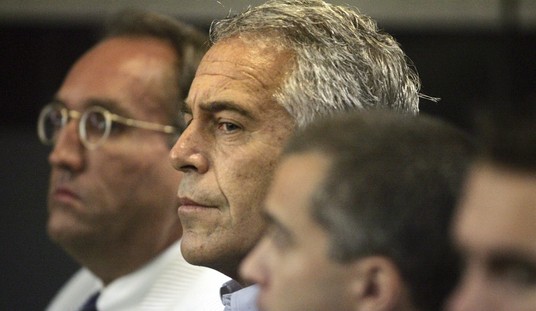Missouri’s MOVE Ballot Fund only had $84 in its bank account in January. Then along came George Soros.
The St. Louis Post-Dispatch reported the Open Society Policy Center — part of Soros’ philanthropic network — gave $300,000 to the St. Louis-based committee backing MOVE. Two days later, MOVE donated $250,000 to another political committee, Clean Missouri, which was trying to get an ethics reform proposal on the November ballot.
That doesn’t violate Missouri law, according to the state Ethics Commission. But Sam Cooper, the Missouri Republican Party’s executive director, told the Post-Dispatch the Soros money move is precisely the kind of political money laundering that Clean Missouri ethics reformers say they want to stop.
“It looks like they were trying to accept money from liberal billionaire George Soros to change how Missouri elects its representatives, and they knew the people of Missouri wouldn’t like that, and they didn’t want to get caught,” said Cooper.
Nonsense, said Bill Vandenberg, a spokesman for Soros’s group. He claimed the billionaire’s involvement was only part of the group’s long-term support for “citizen-driven democracy reforms that help put people over moneyed corporate interests.”
“Missouri is among the states we see as having fundamental challenges, with a system stacked to benefit the wealthy and well-connected that fails to adequately represent people of modest means,” Vandenberg also said in an email.
Cooper, from his position as director of the Missouri GOP, doesn’t see it that way.
“They are trying to draw legislative districts with George Soros’ money to elect our representatives,” Cooper argued.
Former state Rep. Justin Alferman told KSMU it was inherently wrong to believe politics could be removed from the redistricting process, which is by its nature political.
“My argument is it is absolutely impossible to do so, even with their language,” said Alferman, who has worked on Missouri redistricting proposals for the past eight years.
After a couple of court challenges, voters will decide Tuesday if Clean Missouri’s reform package, which includes limits on lobbyist donations and gifts to state officials, along with a plan to set up a new system to map out legislative districts, and campaign finance limits, will be written into the state’s constitution.
A lawsuit aimed at blocking Amendment 1 was victorious at the trial court level but was rejected by an appellate court. After the Missouri Supreme Court declined to hear the case, Daniel Mehan, president and CEO of the Missouri Chamber of Commerce, said the Chamber and other plaintiffs had no legal options left to pursue.
After all, what Missourian could be pleased with what the Independent Voter Network, described as the state’s “Million-Dollar Lobbyist Gift Culture.”
IVN said lobbyists reported giving an average of more than $885,000 in gifts to the Missouri General Assembly every year from 2004-17, for a total of more than $8.5 million.
But the IVN article devoted only one line to the ballot proposal’s redistricting plank: “Creates a nonpartisan process for legislative redistricting.”
Most of Clean Missouri’s advertising has focused on the Amendment 1 proposal’s planks, which would attempt to limit the influence of money on Missouri’s General Assembly, like a TV ad that showed a smiling politician entering a phone booth only to be surrounded by a whirlwind of money.
Todd Graves, an attorney for groups opposed to putting Amendment 1 on the November ballot and chairman of the Missouri GOP, tried to stop Amendment 1 in court. He argued Clean Missouri had wrapped the redistricting proposal in “voter candy,” ethics reforms proposals that nobody could argue with.
”Voters will think they are voting for an ethics measure and they will actually be voting for the most radical legislative district line-drawing in the country,” Graves said. “It will place political parties above local communities and neighborhoods.”
The St Louis Post-Dispatch Editorial Board, Daniel Mehan, president and CEO of the Missouri Chamber of Commerce even though an earlier article in the newspaper described Soros’ connection to Amendment 1 as a “progressive mega-donor bigfoots” it into Missouri’s election, endorsed the ethics reform constitutional amendment.
“Missouri voters will finally have the chance to significantly clean up state government. And those politicos won’t have the chance to undo it because, this time, it’s via a constitutional amendment,” the Post-Dispatch Editorial Board wrote.
Missouri’s Amendment 1 is just one of six similar proposals that will face voters Nov. 6. Similar propositions face voters in Colorado — where separate amendments for congressional and state legislative redistricting are on the ballot — Michigan, Ohio and Utah.
“It’s the best reform map we’ve seen in decades,” Joshua Silver, the chief executive officer of the clean-government advocacy group Represent.Us, which has offered support to all five initiative campaigns, said to the New York Times.
Silver expects the six ballot propositions will be met with favorable voter reaction, especially from those who supported what were seen as fringe campaigns in the 2016 presidential election.
“One thing that both Trump supporters and Bernie’s voters — and pretty much all voters — agree on,” Silver said, “is that the system is rigged.”









Join the conversation as a VIP Member